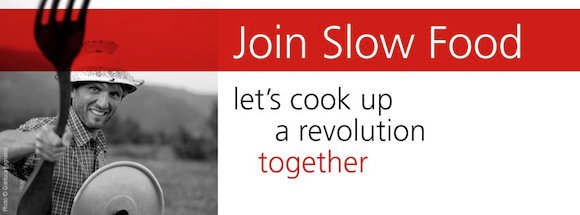-
About
- Our Work
- Get Involved
- Stay Updated
Fast and Flaky or Slow and Steady?

The world is unbeatable if you aren’t as fast as the broadband speed. You close your eyes involuntarily for a sneeze and BAM! The world around you has leaped several decades forward.
Slowing down isn’t an option especially to an environment activist when the planet is burning out on its resources so fast. So, in a world that is now moving towards everything that’s fast and momentous, “Slow Food” is an ambiguous topic in itself. It may evoke contradictory feeling especially in someone who claims to be both environmentally concerned and technically forward; someone like me.
Slow Food was started by Carlo Petrini and a group of activists in the 1980s with the initial aim to defend regional traditions, good food, gastronomic pleasure and a slow pace of life. In over two decades of history, the movement has evolved to embrace a comprehensive approach to food that recognizes the strong connections between plate, planet, people, politics and culture.
With the knowledge that the food production and consumption systems most common today are harmful to the earth and that it jeopardizes the very urge to eat and produce food and exercise the right to pleasure without harming the environmental equilibrium of the planet we live in, the idea of “Slow Food International” came into being; believing in “clean (production that doesn’t harm the environment), good (quality flavorsome and healthy) and fair (accessible price for the consumers and fair pay for the farmers)” food from farm to fork. It aims on making sure that the food in our fork has done justice to both our plate and our planet. They believe that food should be something that came out naturally taking its course of time from the soil, picked out nice and individually (non-processed, mostly) and made it into the plate with least possible detrimental effect on any aspect of the ecosystem.
Although Slow Food supports the principles behind organic agriculture, such as promoting methods that have a low impact on the environment and reducing the use of pesticides, it also argues that organic agriculture, when practiced extensively, is similar to conventional monoculture cropping. Organic certification alone should therefore not be considered a sure sign that a product is grown sustainably.
Nepal, being an under-developed nation, hasn’t been able to catch up much on the “fast-food” concept except in major cities and towns. While the “Slow Food” movement affected nations have had their fast track food, realized the wreckage they’ve caused and reversed back to slower and natural things; country like ours is still on the initial few steps.
So, what are you to think about the “Slow Food Movement”? I’m not here to tell you that. Feel free to have any kind of opinion; in favor, against it or still confused. I’m not even trying to give my own opinion in this regard. What I wanted to do through this piece was let people know that in the world believing in concept of fast food and faster tabloids, there are also people moving to slow food and hence slower burnout of natural resources.
Photo Courtesy: Slow Food
About the author
Related Posts
Comments
No comments made yet. Be the first to submit a commentBy accepting you will be accessing a service provided by a third-party external to https://www.ypard.net/
Get in touch
Email: [email protected]
YPARD Global Coordination UnitHosted by AGRIDEA and the Czech University of Life Sciences Prague
Lausanne, Switzerland and Prague, Czech Republic - Our Work


